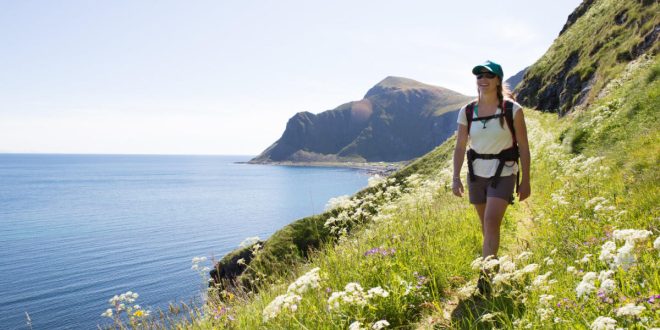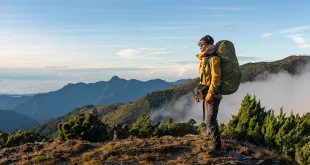Every time I lace up my boots and head out on a trail, I’m reminded of the importance of preparation. Whether I’m going for a short hike or embarking on a longer backpacking journey, having the right gear can make all the difference between a successful adventure and one filled with unnecessary discomfort. Over the years, I’ve learned the hard way that the essentials for hiking and backpacking are not just about carrying a heavy pack but about ensuring my safety, comfort, and enjoyment on the trail. In this article, I’ll take you through my personal must-have items that make each hike and backpacking trip a great experience.
Why Packing the Right Gear is Crucial
When it comes to hiking and backpacking, I’ve discovered that the right gear isn’t just a luxury—it’s a necessity. From staying safe in unpredictable weather conditions to ensuring I stay comfortable on longer treks, the essentials for hiking and backpacking can truly elevate the experience. Properly packing my gear means I'm well-prepared for whatever challenges nature may throw my way, whether it’s a sudden downpour, an unexpected injury, or just a tough incline. Packing the right essentials lets me enjoy my time outdoors without worrying about what I might have forgotten.
Staying Safe: The Foundation of Any Outdoor Adventure
Safety is at the top of my priority list when preparing for a hike or backpacking trip. Having the right safety gear is essential, and it all starts with navigation tools, medical supplies, and emergency preparedness. Here are the items I always make sure to have with me to stay safe on the trail:
A Map and Compass
While modern GPS devices are a great addition, I always carry a physical map and compass. There’s something reassuring about knowing I have a reliable backup if technology fails. On remote trails, or when heading off the beaten path, it’s easy to lose track of your route, especially in dense woods or unfamiliar territory. A map and compass provide me with the peace of mind that I can find my way back, no matter where I am.
A Compact First Aid Kit
A first aid kit is a basic but often overlooked essential for hiking and backpacking. Small injuries like blisters, cuts, or sprains can easily become bigger problems if not properly treated. I pack a compact first aid kit that includes bandages, antiseptic wipes, gauze, tweezers, and pain relievers. I’ve found that having these supplies on hand can save time and prevent minor injuries from turning into more serious concerns on the trail.
Emergency Shelter and Fire Starting Tools
Whether I’m hiking for the day or going on a multi-day backpacking trip, I always carry an emergency shelter. A lightweight bivy sack or space blanket can provide much-needed protection in an emergency. For fire-starting, I bring waterproof matches and a fire starter, which have proven useful on cold, rainy days when warmth and a hot meal are vital.
Comfort and Efficiency: Making the Journey Enjoyable
Hiking and backpacking are physically demanding, but they don’t have to be uncomfortable. The gear I bring helps me stay comfortable and efficient on the trail, ensuring that I can enjoy the natural beauty around me while keeping my energy levels high.
The Right Footwear: Keeping Your Feet Happy
Having the right footwear is essential for a good hiking or backpacking experience. After numerous hikes, I’ve found that investing in high-quality boots with good ankle support and durable soles is essential, especially for longer trips or rough terrain. A comfortable pair of boots helps prevent injuries and provides the traction I need on rocky or slippery surfaces. I also recommend wearing moisture-wicking socks to prevent blisters and keep your feet dry throughout the day.
Clothing for All Weather Conditions
I’ve learned that layers are my best friend when it comes to hiking and backpacking, as the weather can change quickly. For cold days, I pack an insulating layer, like a fleece jacket, to keep warm. I also carry a lightweight, waterproof, and windproof jacket to protect myself from rain and wind. If I’m hiking in hot weather, I make sure to wear light-colored, breathable clothing to stay cool and avoid overheating. A wide-brimmed hat and sunglasses are also great for protecting my face from the sun. Packing the right layers makes it easy to adjust to any weather changes throughout the day.
Staying Hydrated and Energized
Maintaining hydration is one of the most important aspects of hiking or backpacking. I always bring a hydration system or water bottles and drink regularly, especially when trekking through dry or high-altitude areas. To ensure I have clean water throughout my trip, I also pack a water filter or purification tablets. As for food, I keep things lightweight and simple with high-energy snacks like trail mix, energy bars, and dried fruit. These snacks keep my energy levels up without weighing down my pack, allowing me to enjoy the trail without feeling sluggish.
Backpacking Gear: Going the Distance
For extended backpacking trips, I know that my pack needs to carry everything I need for a multi-day journey. Choosing the right backpack is crucial, as it’s the key to maintaining comfort while carrying heavy gear.
A Comfortable, Spacious Backpack
Choosing the right backpack is one of the most important decisions I make when preparing for a backpacking trip. I look for a pack that offers both comfort and space, with adjustable straps and a padded hip belt to help distribute the weight evenly. I also make sure the pack has enough compartments to keep everything organized. Packing light is important, but I also need enough space to carry a tent, sleeping bag, food, water, and all the other essentials I need for the trip.
Tent, Sleeping Bag, and Shelter
When backpacking, shelter is non-negotiable. I always carry a lightweight tent or tarp that’s easy to set up and pack away. A good sleeping bag is also essential for ensuring a good night’s sleep, especially when camping in colder weather. I pack a sleeping pad to provide comfort and insulation from the ground. These shelter essentials are what allow me to recharge for the next day of hiking.
Cooking Essentials
For longer trips, I bring along a lightweight stove and a small cooking pot to prepare hot meals. I prefer freeze-dried meals or simple ingredients that are easy to prepare, as these save space and weight in my pack. Having a hot meal or warm drink after a long day of hiking is always a welcome treat. I also bring utensils, a mug, and a lighter to make cooking more convenient.
Extra Items That Can Enhance Your Experience
While the essentials for hiking and backpacking are non-negotiable, I’ve found that a few extra items can make my experience even more enjoyable.
Headlamp or Flashlight
If you plan to hike in low-light conditions or after sunset, a headlamp is a must. It’s hands-free and convenient, allowing me to keep both hands free to navigate the trail or set up camp. I make sure my headlamp has extra batteries just in case.
Multi-tool or Knife
Having a multi-tool or compact knife can be incredibly useful in many situations. I’ve used mine for everything from preparing food to fixing gear. It’s an essential tool that’s small enough to fit in my pack but powerful enough to solve a wide range of problems on the trail.
Sunscreen and Bug Repellent
To protect myself from the elements, I always bring sunscreen with high SPF and bug repellent. Both are important for avoiding sunburn and insect bites, which can quickly ruin a trip.
Conclusion
When it comes to hiking and backpacking, having the right gear is essential for a successful and enjoyable adventure. The essentials for hiking and backpacking ensure that I’m well-prepared for whatever the trail throws my way, from sudden weather changes to unexpected challenges. By packing the proper gear, I can enjoy the outdoors with peace of mind, knowing I’m ready for any situation. Whether you’re just starting out or are an experienced hiker, the right essentials are the foundation of a great outdoor experience. Happy hiking!
 Best Hiking Gear Hike More, Worry Less
Best Hiking Gear Hike More, Worry Less

